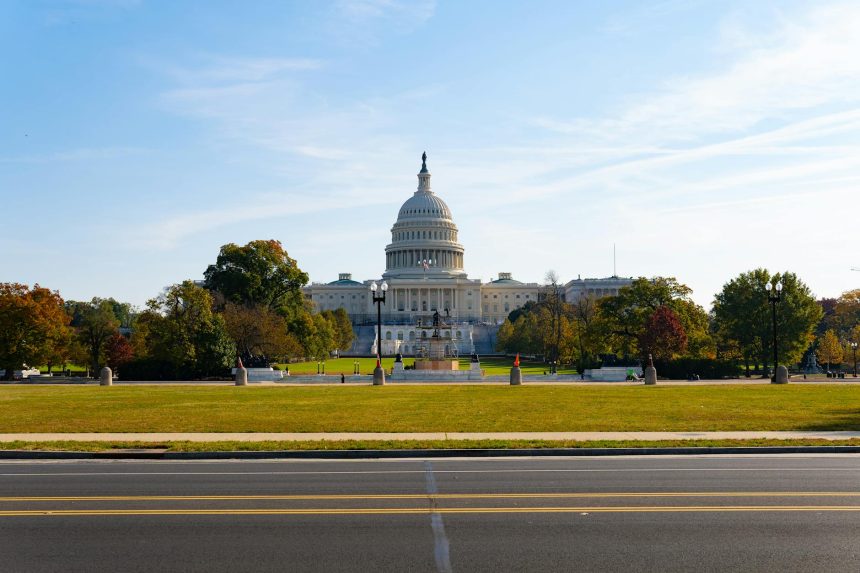# Government Shutdown: NH Faces Health Funding Crisis
The ongoing federal government shutdown, triggered by Senate Democrats’ uncompromising health funding demands, has cast a long shadow over states, and New Hampshire is no exception. Governor Kelly Ayotte’s recent remarks highlight the precarious situation, emphasizing that the prospect of New Hampshire’s healthcare system buckling under the strain is a very real and immediate concern. As federal funding streams dry up, the state is scrambling to find solutions, potentially impacting everything from hospital operations to essential public health services. This shutdown isn’t just a Washington D.C. spectacle; it’s a tangible crisis unfolding in communities across the nation, and New Hampshire is on the front lines.
## The Ripple Effect of a Federal Standoff on State Health Services
When Washington stops working, the consequences are felt far beyond the Beltway. The federal government plays a crucial role in funding a vast array of health programs that directly benefit Granite Staters. This includes support for Medicaid, crucial public health initiatives, research grants, and funding for critical healthcare infrastructure. As the shutdown drags on, these vital lifelines begin to fray, creating a domino effect that can quickly overwhelm state resources.
### Unraveling the Threads of Federal Health Funding
Understanding the scope of the problem requires a closer look at where federal dollars typically flow within the state’s health sector.
* **Medicaid and CHIP:** These programs are cornerstones of healthcare access for low-income families and children. Federal matching funds are essential for states to maintain these services. A prolonged shutdown can lead to delays in reimbursements, straining state budgets and potentially impacting provider payments.
* **Public Health Programs:** From disease surveillance and prevention to immunization campaigns and substance abuse treatment, federal grants underpin many critical public health efforts. Without this funding, states may be forced to scale back or even halt essential services, leaving populations vulnerable.
* **Research and Development:** Many health research institutions and universities in New Hampshire rely on federal grants for cutting-edge studies. A shutdown can disrupt ongoing research, delay new projects, and impact the scientific community.
* **Healthcare Infrastructure:** Federal funding often supports the development and maintenance of healthcare facilities, particularly in underserved areas. Disruptions can stall vital modernization projects.
### Governor Ayotte’s Stark Warning: A State on the Precipice
Governor Ayotte’s assessment of the situation is not one of hyperbole, but a pragmatic recognition of the fiscal realities facing New Hampshire. The state, like all others, operates with a budget that is intricately linked to federal contributions. When those contributions cease, the state must either absorb the costs, cut services, or seek alternative revenue streams – a challenging feat in the short term. Her emphasis on the “prospect” of New Hampshire’s healthcare system facing dire straits underscores the urgency of the situation. This isn’t a theoretical problem; it’s a looming operational crisis that demands immediate attention and resolution.
## Navigating the Storm: New Hampshire’s Response and Potential Solutions
In the face of federal inaction, states are forced to become agile and innovative. New Hampshire is undoubtedly exploring various avenues to mitigate the impact of the shutdown on its residents.
### State-Level Contingency Planning
While the specifics of New Hampshire’s contingency plans may not be fully public, it’s safe to assume a multi-pronged approach is being considered:
1. **Prioritizing Essential Services:** The state will likely focus on maintaining critical care services, ensuring that life-saving treatments and emergency care remain accessible.
2. **Utilizing Reserve Funds:** If available, the state may tap into its rainy-day funds to cover immediate shortfalls. However, these reserves are not inexhaustible and their depletion can have long-term fiscal implications.
3. **Seeking State-Specific Waivers:** In some instances, states can apply for waivers from federal agencies to adjust program requirements or access alternative funding mechanisms, though this process can be time-consuming.
4. **Collaboration with Healthcare Providers:** Open communication and partnership with hospitals, clinics, and healthcare professionals will be crucial to understanding their immediate needs and finding collaborative solutions.
### The Role of Public-Private Partnerships
In times of crisis, the private sector can often step in to fill critical gaps. New Hampshire may explore opportunities to partner with private foundations, non-profit organizations, and even businesses to secure funding or resources for essential health services. These partnerships can provide immediate relief and demonstrate the strength of community collaboration.
## The Human Cost of Political Gridlock: Impact on Granite State Residents
Beyond the budgetary spreadsheets and policy debates, the federal government shutdown has a profound human cost. For the residents of New Hampshire, this means:
* **Delayed or Denied Care:** Individuals relying on federally funded programs may face disruptions to their medical appointments, prescription refills, or essential therapies.
* **Increased Anxiety and Uncertainty:** The fear of losing access to healthcare can create significant stress and anxiety for individuals and families.
* **Impact on Vulnerable Populations:** Those who are already struggling financially or have chronic health conditions are disproportionately affected by disruptions in healthcare access.
* **Strain on Healthcare Workers:** Healthcare professionals, already facing immense pressure, will be further burdened by navigating these funding uncertainties and potentially dealing with increased patient needs without adequate resources.
### Voices from the Ground: What Healthcare Professionals Are Saying
While direct quotes from New Hampshire healthcare professionals are not available in the initial press release, their sentiments are likely echoed across the nation. They are the ones on the front lines, witnessing firsthand the consequences of funding cuts. They understand the critical importance of consistent federal support for maintaining the health and well-being of their communities. Their concerns often revolve around patient access, the sustainability of their institutions, and the ability to provide the highest quality of care.
## Looking Ahead: The Urgent Need for Resolution
The federal government shutdown over health funding demands is a stark reminder of the interconnectedness of national policy and local well-being. Governor Ayotte’s assessment serves as a critical alarm bell for New Hampshire. The state’s ability to weather this storm will depend on its preparedness, its capacity for innovation, and ultimately, on a swift and responsible resolution in Washington.
The current impasse highlights a fundamental disagreement on the priorities of federal spending, particularly concerning healthcare. Senate Democrats’ insistence on health funding demands suggests a belief that these areas are non-negotiable and require immediate, robust federal investment. Conversely, the opposing stance likely stems from broader fiscal concerns or differing views on the scope of federal responsibility in healthcare.
This situation calls for a return to pragmatic governance, where the needs of citizens are prioritized above political posturing. The health and stability of states like New Hampshire are too important to be held hostage by partisan disputes.
For further insights into the broader implications of federal shutdowns on state economies and services, you can refer to analyses from reputable sources like the Congressional Budget Office: [https://www.cbo.gov/](https://www.cbo.gov/)
Understanding the historical context of government shutdowns can also provide valuable perspective. The Government Accountability Office (GAO) offers extensive reports on this topic: [https://www.gao.gov/](https://www.gao.gov/)
## Conclusion
The federal government shutdown presents a clear and present danger to New Hampshire’s healthcare system. Governor Ayotte’s candid assessment underscores the gravity of the situation, where essential services and the well-being of residents are at risk due to ongoing political gridlock. While the state is undoubtedly exploring contingency measures, the ultimate solution lies in a swift resolution of the federal funding impasse. The health of Granite Staters depends on it.
**If you are a New Hampshire resident concerned about the impact of the government shutdown on your healthcare, contact your elected officials and urge them to find a bipartisan solution.**
copyright 2025 thebossmind.com
Featured image provided by Pexels — photo by Suyash Mahar










